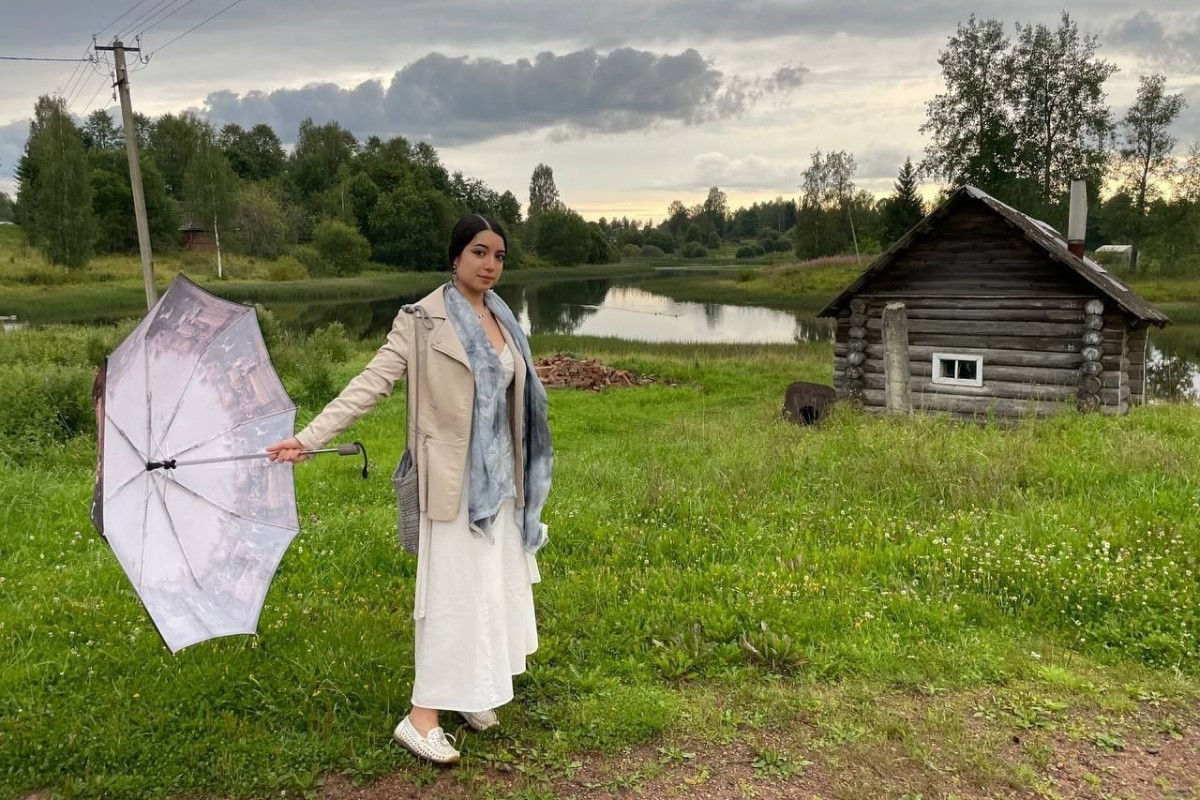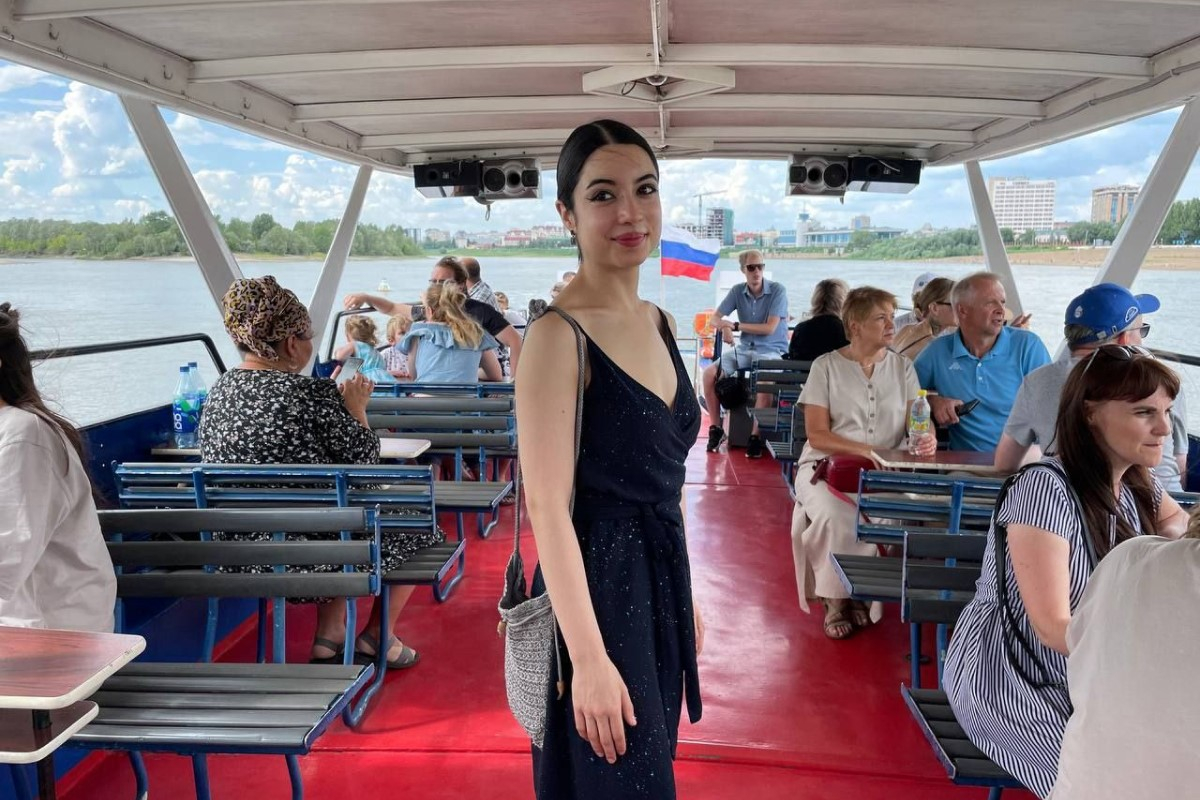From Mexico to Russia by the way of Japan: María’s journey to study music at SPbU
María Macías is an international student from Mexico who has started her studies in the Master’s programme in Historical Performance on Keyboard Musical Instruments this year. She has planned to come to Russia for a long time but took an unusual path to get here. In this interview, she shares the challenges of applying to a Russian university, the experience of studying music at SPbU Faculty of Arts, and some advice for future students.

What brought you to choose Russia and St Petersburg University in particular?
I come from the north of Mexico, Chihuahua. However, from an early age, I wanted to study abroad because I felt I could receive a better education and expose myself to new perspectives that way. I have been playing the piano since childhood, and I have always loved Russian composers like Tchaikovsky, Rachmaninov, Scriabin, and Shostakovich. Since I was about 15, I dreamed of studying music in Russia. I also did ballet and gymnastics, and I fell in love with Russian ballet. So I realized that many of the things I liked from childhood—ballet, music, chess, and gymnastics—were connected to Russia.
I didn’t go to Russia right away, though. While I was still in my first year of high school, I won a scholarship to study abroad in Japan. I then entered the International Christian University in Tokyo, where I started learning the organ alongside traditional Japanese instruments (the shō and the Okinawan sanshin). In 2023, I graduated with a Bachelor of Arts in Musicology and Literature. Only then did I apply for Master’s degree programmes in Russia.
Was the application process challenging?
It was quite a complex process, to be honest. At first, I tried applying through the Rossotrudnichestvo office in Mexico, but I did not realize that it was allowed to apply to performing arts programmes this way. In the end, I applied directly through the SPbU website. We had a portfolio competition that included a recorded audition, a motivation letter, and other documents. Furthermore, I had to submit all my documents translated into Russian and have the translations notarized. I also had to apostille my degree, which was something I had never dealt with before. I wasn’t familiar with the need for apostilles or notarized translations. Getting the necessary documents and translations was also quite expensive. But since I was accepted with a "budget placement" (a Russian Government Scholarship that waives tuition for a select number of applicants with outstanding achievements), it was all worth it.
You Russian is really good. How did you learn it so well?
I started studying Russian while still in high school in Mexico. Since there were no Russian courses where I lived, I began learning online, primarily using the HelloTalk app. While studying at university in Tokyo, I had the opportunity to take Russian as an elective second language and had a roommate from Russia. So, my learning was a mix of online resources, formal training, and plenty of conversations with native speakers. However, when I moved to Russia, I realised that there was quite a gap between the spoken and written language, so I had to learn the meaning of a lot of slang words along the way.
The language requirement for my application was the TORFL II exam at the B2 level (upper-intermediate proficiency), but I only had TORFL I. Fortunately, I was accepted anyway. My level has likely improved since then, and I plan to take the TORFL II exam soon.
Learn more about TORFL exam here
In my program here, I have Russian as a foreign language classes. While Russian students take English as a foreign language, foreign students take Russian. This class is quite challenging because we no longer study the basics; instead, we focus on advanced grammar and academic writing, as we are required to write our master’s thesis in Russian.
I am worried that one of my classmates might drop out because he is not very confident in his Russian. The programme description mentions English, but this mainly refers to Russian students taking English classes; everything else is in Russian. Studying here without a strong foundation in Russian can be challenging. Additionally, unlike the application process through Rossotrudnichestvo, applying directly to master’s programmes at SPbU does not include a preparatory Russian language year.
What’s your impression of the programme so far? How are you adjusting to the study pace? How are your classmates and teachers?
After a month of classes, I can confidently say that the university is excellent. I am especially amazed by how good the teachers in my faculty are. I was really nervous about applying; I thought I would not even get in because Russia is known for its very high level of musical education. My Russian friends also warned me that music teachers in Russia can be very strict, with high standards, so I was quite anxious during the first classes, fearing I might be out of place. However, all the teachers have been incredibly kind and attentive.
My classmates are also very talented and dedicated. Everyone takes notes and practices regularly, which is really inspiring. The professors are incredibly detailed as well; they check every note carefully, showing that they truly care about what they do. They put a lot of attention and dedication into their teaching.
Before coming here, I only knew how to play the organ, but here we have three main instruments: the organ, the harpsichord, and the carillon. The programme is quite challenging because you have to master three difficult instruments at the same time, which means constant practice. Fortunately, our faculty has all these instruments, and because the groups are small, we have ample access for individual practice. When I studied in Tokyo, we only had access to the organ for about five hours per week.
Instrumental performance in organ, harpsichord and carillon is available as a graduate and an undergraduate programme
We also have opportunities to play the carillon in The Peter and Paul Fortress, the Cathedral there, in front of a live audience. We’ve already had rehearsals there. This instrument is very rare—there are only three of them in Russia—, and they are also extremely expensive, so the opportunity to play at this venue is very special.
Living so far from home, what has been your experience? What surprised you, and what challenges have you faced? How did you overcome them? Do you have any advice for other international students?
Navigating the bureaucracy here has been one of the most significant challenges. The regulations are very strict, and there were many details I did not initially realize were so important. For instance, I was required to register with the migration office and provide my fingerprints. Fortunately, I had assistance throughout the process; otherwise, I am uncertain I would have managed on my own. It is particularly challenging for foreign nationals, as all procedures are conducted in Russian, with minimal English-language support. Nevertheless, ensuring that all documents are in order and that mandatory migration procedures are completed on time is crucial.
You can take a look at the necessary steps when moving to Russia at our Visa Support page
While I had support during this process, I can imagine how overwhelming it would be without assistance. I am grateful to be here, though the bureaucratic process was daunting at first. Hopefully, things will be smoother moving forward, but for newcomers, it can be tough. Honestly, navigating the bureaucracy as a foreign student without Russian-language skills is nearly impossible without local support.
Financially, studying music here is much more affordable than in most other countries, especially since SPbU offers budget placements for foreign students. Additionally, fruit and vegetables are cheaper here compared to Japan. However, certain expenses can be high for foreign students, such as winter clothing. I did not have any warm clothes suitable for St Petersburg winters — a coat, boots, pants, and so on. Imported goods can also be quite expensive.
Another potential source of stress is the limited availability of direct flights. When I first travelled to Russia, I had to fly from Japan to Almaty (Kazakhstan), then to Omsk, and finally to St Petersburg. Returning to Mexico is also costly, and I am unsure when I will be able to visit again. It is equally challenging for my parents to come see me—they would have to travel through Turkey, which is expensive, or through Estonia, where border issues and long lines can complicate the journey.
Many students are also concerned about transferring money. Before coming here, I exchanged currency for rubles through friends. Others rely on cryptocurrency or bring cash in dollars to exchange locally. Students from CIS countries have certain alternatives, but the situation is constantly evolving, so staying adaptable is necessary. This adds another layer of complexity.
My parents support my decision to study here, though they were initially concerned, which is understandable. Perceptions can vary widely depending on the news source—Russian or foreign—since each offers a different portrayal of the situation. From abroad, it is difficult to get a clear sense of what daily life in Russia is truly like.

How are you liking St Petersburg so far?
Saint Petersburg is a beautiful city with stunning architecture. However, the weather can be challenging, especially for students from Latin America. By October, it is already cold and there is very little sunlight. I brought my warmest coat with me, only to learn that it was only suitable for September weather! Fortunately, I now have valenki and a warmer coat. Nonetheless, I am excited to see what my first winter in Russia will be like.
The Faculty of Arts is located on Vasilievsky Island, which is a very picturesque area. One of the things I love most about living here is that there are so many cultural events—concerts, ballet, opera, exhibitions, museums, and festivals. I have always admired Russian ballet, and St Petersburg has a wonderful ballet scene. I also love Dostoevsky, and recently visited his former home, which is now a museum. I have already been to the Mariinsky and Aleksandrinsky Theatres, and I have found a nearby ballet studio where I have started taking lessons.
What are your career plans?
I think I want to continue studying further. I would like to continue my studies in a Conservatory in Russia. I would like to continue playing music all my life of course, but I would also like a career in cultural management or a similar field. After studying, I’m still thinking whether I want to go back home or stay in Russia or try some other country.
I would like to express my deep gratitude to St Petersburg University for the opportunity to study here. My programme is truly unique, and it is a great honour to have the chance to play the organ, harpsichord, and carillon in Russia. I am continually impressed by the quality of the teachers and feel very inspired by my classmates. Additionally, the instruments available in our faculty are exceptional. I believe that, thanks to this programme and my wonderful instructors, I can grow significantly as a musician. Thank you very much, SPbU, for accepting international students and providing us with so many opportunities for learning and development.

